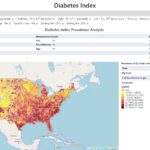

Why Every Health Care Organization Needs a Data Science Strategy

NEJM Catalyst I March 22, 2017
Harnessing the full potential of data requires developing an organization-wide data science strategy. Such strategies are now commonplace in most industries such as banking and retail. Banks can offer their customers targeted needs-based services and improved fraud protection because they collect and analyze transactional data. Retailers such as Amazon routinely collect data on shopping habits and preferences to profile their customers and use sophisticated predictive algorithms to tailor marketing strategies to customer demand.
Health care is a glaring exception. Individual pieces of data can have life-or-death importance, but many organizations fail to aggregate data effectively to gain insights into wider care processes. Without a data science strategy, healthcare organizations can’t draw on increasing volumes of data and medical knowledge in an organized, strategic way and individual clinicians can’t use that knowledge to improve the safety, quality, and efficiency of the care they provide.
A comprehensive data science strategy needs to address the quality of the underlying data, effective ways to analyze the data and a framework for keeping it secure. If an organization tries to aggregate and analyze poor-quality data, it may derive useless or even dangerous conclusions. An inadequate security framework may lead to unauthorized access and undermine the trust of patients and providers.
A carefully developed data science strategy will help achieve both precision medicine (helping to tailor treatments to patients) and the creation of learning health systems (helping to predict outcomes and identifying specific areas for improvement). Ideally, every decision a provider makes about a patient should be informed by the data of both that specific patient and other similar patients. In a learning health system, prior experiences improve future choices. Read Full Article









